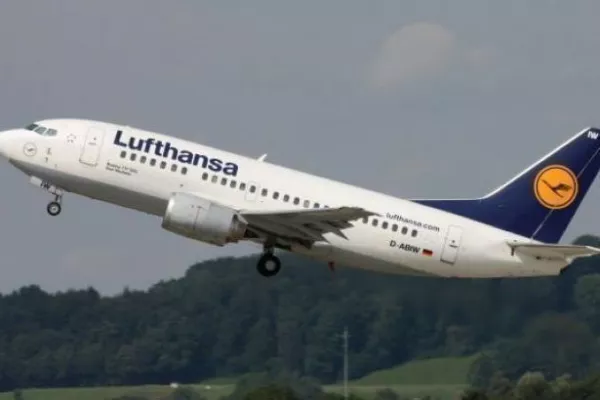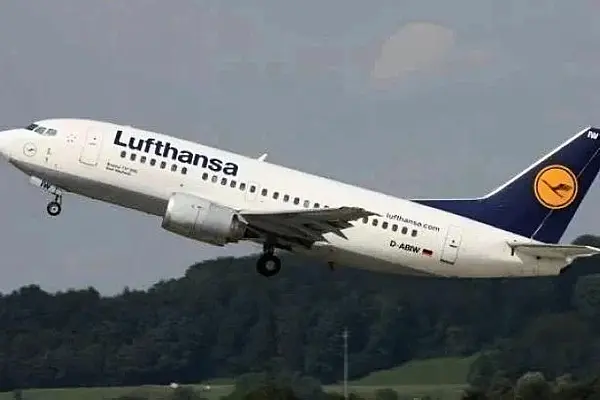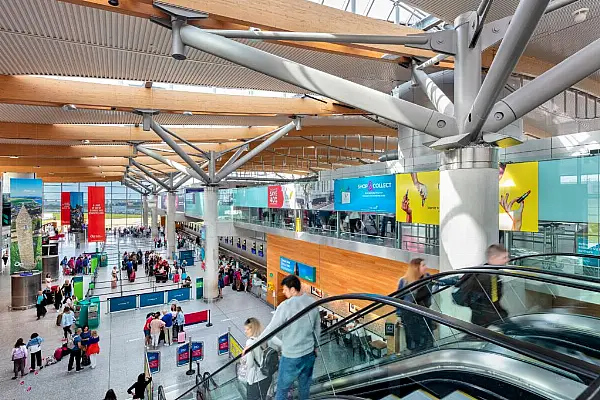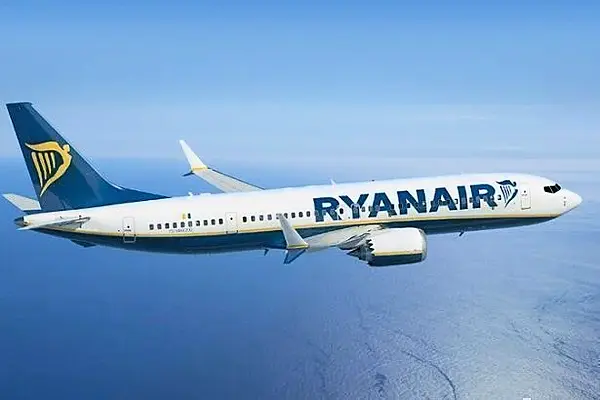Germany's Lufthansa has said that recovering air travel and progress on cost savings helped the airline to further narrow its losses in the second quarter and record cash inflow for the first time since the start of the COVID-19 crisis.
The group, which also owns Eurowings, Swiss, Brussels and Austrian Airlines, reported its adjusted operating loss narrowed to €952 million from €1.7 billion a year earlier, slightly below the €971 million forecast in a company-provided poll.
Lufthansa said that the easing of travel curbs and pent-up demand drove significant recovery during the quarter and together with cost savings, which included job cuts, helped stem the cash bleed and deliver a €340 million cash inflow.
"The fact that more than 30,000 colleagues have left us in the process so far hurts us all, but is unavoidable to sustainably save the more than 100,000 remaining jobs," chief executive Carsten Spohr said in a statement.
Bernstein analysts welcomed the progress in restructuring, but noted uncertainty about the group's capital-raising plans.
"There is still no decision around the size and timing of an equity raise, previously planned to be before the election in September – and still top of investors' minds," they said in a note.
Lufthansa said its airlines carried seven million passengers in the quarter, 18% of 2019 levels, though the numbers improved through the quarter to reach 40% at the end of June. Revenues rose 70% from last year to €3.2 billion, a touch below analysts' forecast.
Rivals, including Air France-KLM and British Airways owner IAG also reported a return to positive cash flow, but like IAG, Lufthansa was more cautious about its outlook than some competitors.
While it predicted high tourist demand and a gradual recovery in business travel in the second half, the group kept its full-year capacity target at 40% of pre-crisis levels and forecast it reaching 50% in the third quarter.
EasyJet and Ryanair, low-cost airlines with no transatlantic routes hit by US curbs on inbound travel, forecast reaching two-thirds of capacity, and Air France-KLM saw it at 60% to 70%.
Lufthansa, which in June laid out plans to return to profitability with fewer planes and staff than it had before the pandemic, said it had already reached half of the €3.5 billion in cost cuts targeted by 2024. That was six months ahead of plan, helped by better than expected uptake of voluntary redundancy programmes in Germany and Switzerland.
The group said that its freight business made a record profit, while its service arm returned to the black during the quarter.
The amount of cash that Lufthansa aims to raise on a planned new share issue will be significantly below €3 billion to €4 billion, the airline's finance chief has said.
Remco Steenbergen told reporters that such numbers have been mentioned in the media and that no decisions have been made yet, but added, "I think it is significantly less."
Insiders told Reuters earlier Lufthansa was planning an increase of approximately €3 billion, but Spohr said lower pension liability had reduced the need of fresh capital in the past months.
The group, which last year received a €9 billion lifeline in public funding to stay afloat, has said it planned a capital increase, possibly before the September 26 parliamentary election, so that bail-out money could be returned to taxpayers earlier than originally envisaged, depending on market conditions.
Pressed on the timing of the increase Spohr said, "I have said 'possibly before the parliamentary elections' and the word 'possibly' was there for a reason."
Qatar Airways Instructed To Ground 13 Planes
Qatar Airways has been instructed by its regulator to ground 13 Airbus A350 planes due a faster than expected deterioration of the fuselage surface below the paint on the jets.
The state-owned Gulf airline said that it had been told to ground the planes until "the root cause can be established and a satisfactory solution made available to permanently correct the underlying condition."
Qatar Airways has been locked in a months-long public dispute with Airbus, insisting it would not take any deliveries of the carbon-composite widebody jet until the problem was resolved.
"With this latest development, we sincerely expect that Airbus treats this matter with the proper attention that it requires," Qatar Airways Chief Executive Akbar Al Baker said in a statement announcing the regulator's grounding of the jets.
"Qatar Airways expects Airbus to have established the root cause and permanently corrected the underlying condition to the satisfaction of Qatar Airways and our regulator before we take delivery of any further A350 aircraft.”
An Airbus spokesperson told Reuters the plane maker was always in talks with its customers but those discussions were confidential, declining to comment further.
Qatar Airways said in June it had grounded some of its A350 jets until the issue could be understood and fixed, without disclosing how many aircraft had been pulled from service.
It said that it had brought A330 aircraft back into to service to make up for the lost capacity and was also "looking at other solutions."
Qatar Airways is the largest customer for the A350 and has taken delivery of 53 out of 76 on order.
The airline has periodically criticised Airbus or its US rival Boeing for delays or quality lapses.
It says its exacting standards reflect its premium brand, although aerospace executives have accused it of seizing on such details in the past to delay taking deliveries or gain leverage in other negotiations, a suggestion it has denied.
Many airlines have adjusted deliveries due to the pandemic-related travel downturn. Qatar Airways said in June 2020 it would not take Boeing or Airbus jets in 2020 or 2021 and later that year said it had reached a deal on schedules with Airbus.
United Airlines Makes COVID-19 Shots Compulsory For US Employees
United Airlines Inc has became the first US airline to require COVID-19 vaccinations for all domestic employees, joining a swelling list of companies mandating jabs for workers as coronavirus cases rise.
Employers from Microsoft to Tyson Foods have mandated vaccines, recent moves that experts said were legal but could raise labor tensions in unionized workplaces.
Earlier in the day, United, which is the number three US carrier by revenues in 2019 according to government data, said that its 67,000 US employees would need to show proof of inoculation for a vaccine fully approved by the US Food and Drug Administration (FDA).
Such approval is expected this autumn.
"The facts are crystal clear: Everyone is safer when everyone is vaccinated," United CEO Scott Kirby and President Brett Hart said in a letter to employees.
Kirby and Hart said they expected some employees would disagree with the decision, although 90% of the carrier's pilots and 80% of flight attendants are already vaccinated.
Eric Feldman, a professor at the University of Pennsylvania Carey Law School, said mandates like the one United announced are on "strong legal footing."
The mandate comes as concerns over the variant reverberate through the US airline industry, which is rebounding from a slowdown in travel last year due to the virus.
Health officials have called for reinstating indoor mask mandates for most vaccinated Americans and some companies are delaying return-to-office timetables.
Unions from several industries, including ones representing pilots from American Airlines Group and United, want any vaccine mandate to be worked out through collective bargaining.
Paul Clark, a professor of labour and employment relations at Penn State, said he believes unions want to avoid any precedent of employers taking decisions alone on working conditions.
"If you allow an employer to make a unilateral decision in this area it erodes their bargaining rights," Clark said. "What are they going to make a unilateral decision about next time?"
The Association of Flight Attendants, the union representing United flight attendants, backed the move.
"There is now too much at risk to not ensure the safety and well-being of United Flight Attendants," the union said in a statement.
United, like rival Delta Air Lines, was already requiring the vaccine for new employees and had encouraged current employees to voluntarily take the vaccine through incentives like bonuses or vacation time.
Some other major industries like US automakers have reinstated mask requirements but declined to mandate vaccines for employees.
Frontier Airlines Mandates COVID-19 Vaccinations For All Employees By October 1
Low-cost carrier Frontier Airlines has said that all of its employees will be required to be fully vaccinated against COVID-19 by October 1 in view of rising coronavirus cases.
Companies across the United States are increasingly reinstating masking requirements and mandating vaccination to contain the highly transmissible Delta variant.
The airline said employees who choose not to be vaccinated, or are unable to, will be asked to provide proof of a negative COVID-19 test on a regular basis.
"As we continue to watch the rapid increase of new COVID-19 cases across the United States caused by the Delta variant, I am concerned for the well-being of our team members, their families and friends," Frontier Airlines CEO Barry Biffle said.
"The good news is that the vast majority of our employees have already taken this important step and have gotten vaccinated."
Frontier Airlines is also encouraging flyers to get vaccinated with certain incentives through its Friends Fly Free programme.
Virgin Atlantic Planning London Listing
Britain-based airline Virgin Atlantic is planning to list on the London Stock Exchange, Sky News has reported.
Citing "City sources", it said that the airline founded by Richard Branson has received positive responses from institutional investors about an initial public offering, with an autumn announcement likely.
It said the move would almost certainly see Branson relinquish overall control of the business.
It added that Virgin Atlantic has hired Citi and Barclays to oversee the listing.
The airline is 51% owned by Branson's Virgin Group and 49% by the US's Delta Air Lines Inc.
"We won’t be commenting on speculation," said a Virgin Atlantic spokesperson.
Like most airlines, the firm has been hammered by the COVID-19 pandemic.
In April, it reported a £659 million pre-tax loss for 2020 after passenger numbers dropped 80%.
Virgin Atlantic cut costs last year, shedding 41% of its workforce and retiring some older aircraft early.
Virgin Atlantic may need a deeper travel recovery to take hold before it can secure investor backing for its plans to float on the London Stock Exchange, analysts said.
Analysts said that Virgin, which has declined to comment on the IPO plans, may need to wait longer.
"This is a bit of a strange time to be selling airline shares," said Hargreaves Lansdown equity analyst Laura Hoy.
Like most airlines, Virgin has been brought to its knees by the pandemic, with the carrier even more severely affected than rival British Airways due to its focus on Britain-US routes, which still remain partially closed.
Virgin has survived the pandemic thanks to a £1.5 billion rescue between September of 2020 and March of 2021 and axing approximately half of its staff to cut costs.
The company now wants to bring in new investment to boost its finances as the outlook for travel brightens. Fully vaccinated American citizens are now able to fly to Britain without the need to quarantine, but most Britons cannot freely travel to the United States.
"The pitch to investors will clearly be the timing of the return to normalised demand and business traffic, with this challenged by concerns over the longevity of government-imposed restrictions," analysts at Goodbody said in a note. "That debate will be central if the listing is launched as early as the autumn."
There is no clarity on when the United States will reverse its ban on UK arrivals, and, globally passenger numbers are not expected to return to pre-pandemic levels until 2023, industry body IATA has said.
Virgin has pointed to a pick-up in demand. The airline has said bookings from New York to London surged by nearly 250% in the week when Britain changed rules for U.S. arrivals, and said it was also helped by Caribbean routes and cargo.
But the group's track record on profitability could cause concerns for investors. As mentioned above, the pandemic pushed the company to a £659 million loss for 2020, but over the three years before COVID-19 restrictions, it also made a loss, the group's annual reports show.
News by Reuters, edited by Hospitality Ireland. Click subscribe to sign up for the Hospitality Ireland print edition.









